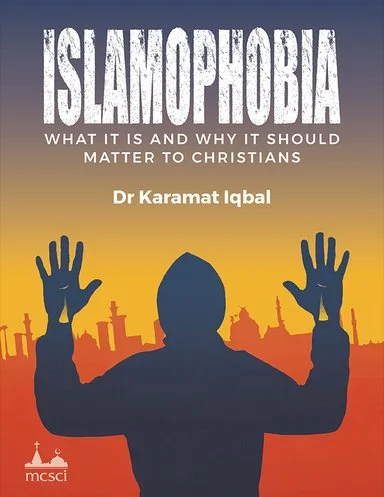Annual Muslim festivals & their dates
Resources > Engaging Muslims > Engaging as individuals > Muslim festivals
Muslim festivals are good opportunities for getting to know our neighbours and for conversations about faith. Here are the major festivals in the year, with some information about them and the dates for this year and next (dates may very slightly according to the when the new moon is sighted).
Laylat al-Miraj
Laylat (or Lailat) al-Miraj marks the night-time journey of the prophet Muhammad from Mecca to what the Qur'an describes as the 'farthest mosque in Jerusalem,' now the Al Aqsa Mosque. It has been described as both a physical and spiritual journey. Muslims believe Muhammad traveled on the horse Buraq to "the farthest mosque" where he led other prophets in prayer. He then ascended to heaven where he spoke to Allah, who gave him instructions to take back to the faithful regarding the details of prayer.
Some Muslims gather at their local mosque for prayers, while others celebrate at home by telling the story of Muhammad's journey to children and reciting prayers at night.
Nowruz
Nowruz marks the first day of spring and the beginning of the year in the Persian calendar. Before the collapse of the Soviet Union, Iran was the only country that officially observed the ceremonies of Nowruz. When the Central Asian and Caucasus countries gained independence from the Soviets, they also declared Nowruz as a national holiday.
Shab e Barat
Also called Laylat al-Bara'at, this is when Muslims believe the fortunes of men are decided for the year ahead and when Allah descends to earth and offers mercy and forgiveness to sinners. Prayers are held through the night so that worshippers can ask for forgiveness for themselves and for their dead ancestors. Lamps are lit outside mosques.
Additionally, Twelve Shia Muslims commemorate the birthday of Muhammad al-Mahdi on this date.
Ramadan
During this month, Muslims fast from before dawn through to sunset. Fasting means no food or drink and also refraining from smoking, sex and 'sinful behaviour' such as swearing, lying and gossiping.
Muslims believe Ramadan is the month in which the first verses of Islam’s holy book, the Qur’an, were revealed to Muhammad.
Within the last 10 days of Ramadan is the celebration called Laylat al-Qadr, meaning Night of Power or Destiny. This is when the first verses of the Qu'ran were revealed and is said to be the night when sins are forgiven and the blessings and mercy of Allah are abundant. Many traditions observe it on the 27th night of Ramadan.
Read more about Ramadan here.
Eid ul-Fitr: Festival of Breaking the Fast
This is the Festival of the Breaking of the Fast. It marks the end of Ramadan. Eid ul-Fitr is celebrated for one, two or three days. Common greetings during this holiday are the Arabic greeting ‘Eid Mubārak ("Blessed Eid")
Hajj
This is the annual pilgrimage to Mecca, a journey that is required at least once in a Muslim worshipper's lifetime if they are financially and physically able to do it. Up to three million Muslims perform the pilgrimage every year.
The second day of the Hajj is called the Day of Arafah, commemorating Muhammad's final sermon, which was delivered from Mount Arafah. Pilgrims hold a vigil at Arafah, where they pray, repent for their sins and ask for mercy from Allah.
Read more about how the Hajj relates to your Muslim friends here.
Eid ul-Adha: Festival of Sacrifice
This is the second Eid celebration in the Muslim year. The holiday lasts from three to 16 days, depending on the country.
It commemorates Ibraham’s willingness to sacrifice his son. He was about to go ahead when he was shown a ram to slaughter instead. Muslims mark the occasion by sacrificing a lamb, goat, cow or other animal and sharing the meat with friends and neighbours, and with the poor and needy.
Read more about how Eid ul-Adha relates to your Muslim friends here.
Islamic New Year and Muharram
The first day of the month of Muharram, the first month in the Islamic calendar, is Islamic New Year.
The Islamic calendar began in 622AD with the migration of the prophet Muhammad and his followers from Mecca to Medina, the Hijra, to escape persecution. It is used to date events in many Muslim countries.
Read more about how Muharram relates to your Muslim friends here.
Ashura
Ashura falls on the 10th day of Muharram.
For Shia Muslims, Ashura marks the anniversary of the tragic death of the prophet’s grandson, Husain, and 72 companions at the battle of Karbala in 680AD. They mark the day with mourning and sometimes by re-enacting the tragic event.
Arba'een
This is a Shia Muslim religious observance that takes place 40 days after Ashura, the traditional length of mourning. It commemorates the martyrdom of Husain, the grandson of Muhammad in the Battle of Karbala.
Arba'een sees one of the largest pilgrimage gatherings in the world, with millions of Muslims marching on foot to Karbala in Iraq.
Maulid Al-Nabi: the prophet’s birthday
Maulid (or Mawlid) al-Nabi means 'birth of the prophet'. The exact date of Muhammad's birth is not known but is often regarded as the 12th day of the month by Sunni Muslims, although Shia Muslims believe the prophet's birthday was on the 17th day.
This date is observed by praise, fasting, public processions, poetry, family gatherings and the decoration of streets and homes.
Read more about how the prophet’s birthday relates to your Muslim friends here.








